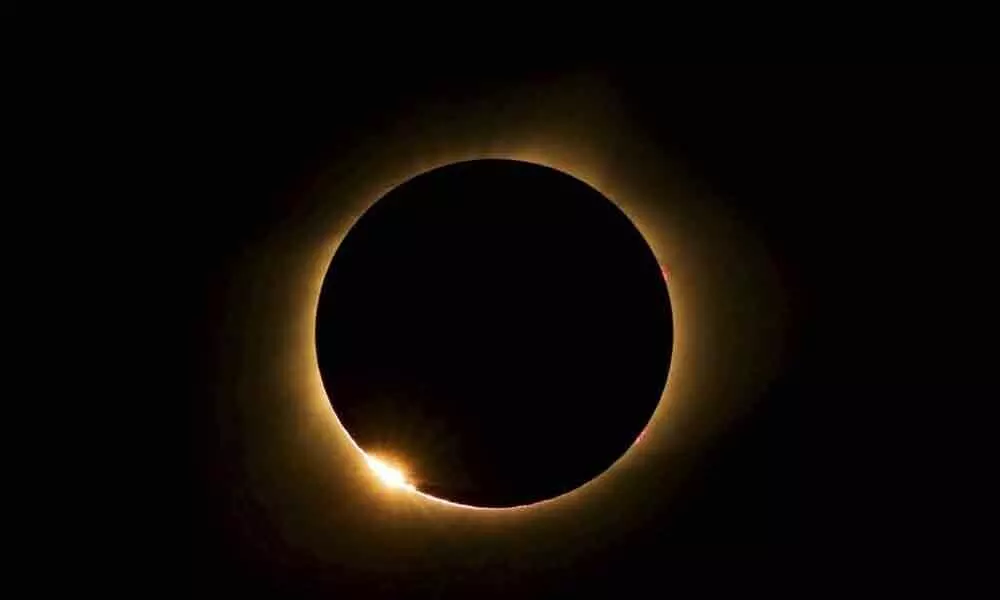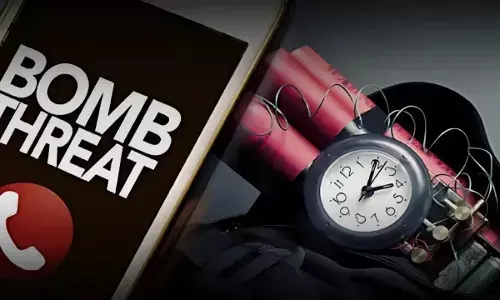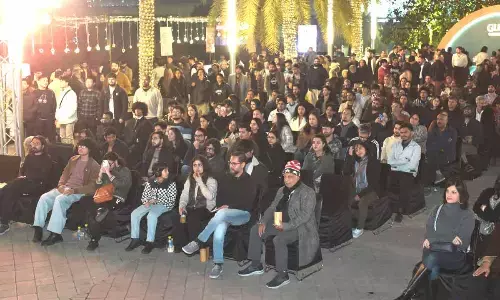Solar Eclipse 2020: India to Witness Annular Solar Eclipse on June 21
Share :
 Solar Eclipse 2020
Solar Eclipse 2020The Ministry of Earth Sciences on Tuesday said that an annular solar eclipse will occur on June 21 and the celestial event will be visible in Rajasthan, Haryana and Uttarakhand.
New Delhi: The Ministry of Earth Sciences on Tuesday said that an annular solar eclipse will occur on June 21 and the celestial event will be visible in Rajasthan, Haryana and Uttarakhand.
A solar eclipse occurs on a new moon day when it comes in between the earth and the sun and all the three objects are aligned.
An annular solar eclipse occurs when the angular diameter of the moon falls short of that of the sun and it fails to cover up the latter completely. As a result a ring of the sun's disk remains visible around the moon.
The sky gazers will get an opportunity to observe the "ring of fire" during the phenomenon.
The eclipse will be seen as a partial solar eclipse from the rest of the country. Few prominent places within this narrow annularity path are Dehradun, Kurukshetra, Chamoli, Joshimath, Sirsa, Suratgarh, etc.
In India, the obscuration of the sun by the moon at the time of greatest phase of the annular eclipse will be nearly 98.6 per cent.
Obscuration of the sun by the moon at the time of the greatest phase of partial eclipse will be around 94 per cent in Delhi, 80 per cent in Guwahati, 78 per cent in Patna, 75 per cent in Silchar, 66 per cent in Kolkata, 62 per cent in Mumbai, 37 per cent in Bangalore, 34 per cent in Chennai, 28 per cent in Port Blair.
Eclipsed Sun should not be viewed with the naked eye, even for a very short time. It will cause permanent damage to the eyes leading to blindness even when the moon covers most portion of the Sun.
Safe technique to observe the solar eclipse is either by using a proper filter like aluminized Mylar, black polymer, welding glass of shade number 14 or by making a projection of the sun's image on a white board by telescope.
















